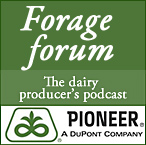The House passed a one-week extension of current farm law Wednesday, hoping to give Congress more time to finish a multibillion-dollar farm bill that is stalled by a dispute over tax breaks.
Negotiations on the roughly $280 billion, five-year bill to expand agriculture and nutrition programs are in disarray with lawmakers from the House and Senate squabbling over how to pay for it. The White House says both the current House and Senate versions are too expensive and has threatened a veto if either one reaches the president’s desk with the spending intact.
House members object to several tax breaks in the Senate bill, including provisions to help owners of race horses, landowners who find endangered species on their property and those involved in litigation over the Exxon Valdez oil spill.
Congress also is arguing with the Bush administration over how the bill will be financed. With so many issues to resolve, Peterson said Congress may need more time beyond the one additional week approved by the House. The Senate is expected to vote on the extension before the law expires on Friday. President Bush said last month that lawmakers should stop relying on such short-term fixes and extend current law for at least a year if it expired without a new law in place. The 2002 law originally expired Sept. 15.
In addition to the funding issues, the Bush administration has objected to giving new money to farmers _ especially those who are already wealthy _ when crop prices are high and farm country is in good shape. The bills passed by both chambers would expand subsidies for several crops and create new grants for vegetable and fruit growers.




 Managing the gaps in today’s agriculture can be an issue, says Dr. Bill Mahanna, coordinator of global nutritional sciences for Pioneer. When visiting an operation, several factors come into play before a crop becomes feed. Pioneer can offer expertise to deal with the full continuum – managing the gaps between growing and cutting the feed to packing the silo and feed management. Mahanna comments on Pioneer’s integrated forage approach and the expertise available to producers.
Managing the gaps in today’s agriculture can be an issue, says Dr. Bill Mahanna, coordinator of global nutritional sciences for Pioneer. When visiting an operation, several factors come into play before a crop becomes feed. Pioneer can offer expertise to deal with the full continuum – managing the gaps between growing and cutting the feed to packing the silo and feed management. Mahanna comments on Pioneer’s integrated forage approach and the expertise available to producers.

 Dairy Markets Week in Review
Dairy Markets Week in Review